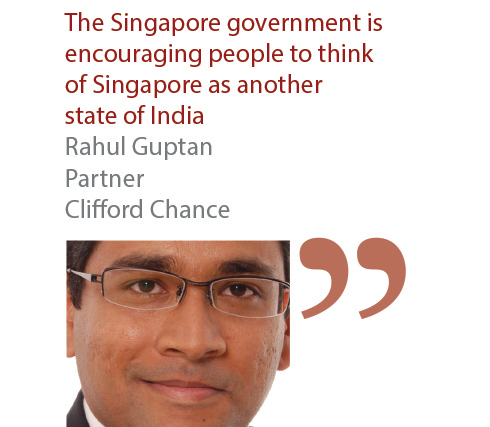Singapore is seeking to enhance its standing as India’s business hub for Asia. Yet as India’s legal and financial markets mature, its reliance on offshore expertise and capital may be falling
Welcome to Singapore – India’s most efficient city. At least that’s how the Singaporean government would like its equatorial republic to be perceived. Singapore has worked hard to strengthen ties with India and promote the city as a base for inbound and outbound Indian investment. The Comprehensive Economic Cooperation Agreement signed between the two countries on 1 August 2005 focuses on bilateral investment, trade, security and educational interests and is the first such extensive agreement between India and any of its trading partners.
“The Singapore government is encouraging people to think of Singapore as another state of India,” says Rahul Guptan, a partner at Clifford Chance. It may be working: “A number of Indians joke that Singapore is India’s fifth metro,” says Narayan Iyer, a partner at Linklaters. “The biggest metro … and everything works!”
Indians comprise Singapore’s third-largest ethnic group and have played a prominent role in its political and economic development. Ethnic Indians such as Singapore’s sixth and current president, SR Nathan, continue to hold high office. It is even believed that the Sanskrit words simha and puram – lion city – gave the island its name.
You must be a
subscribersubscribersubscribersubscriber
to read this content, please
subscribesubscribesubscribesubscribe
today.
For group subscribers, please click here to access.
Interested in group subscription? Please contact us.























